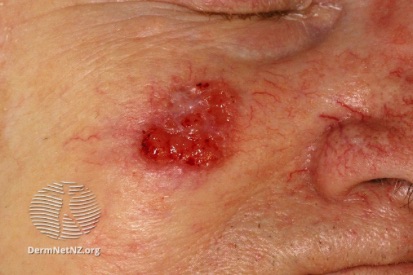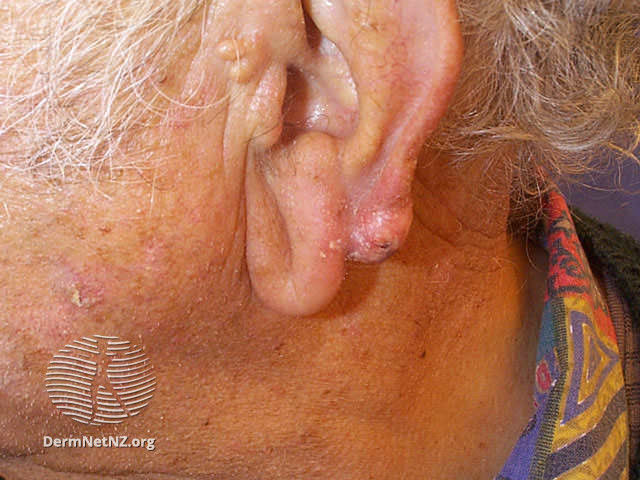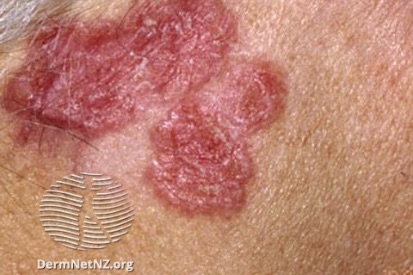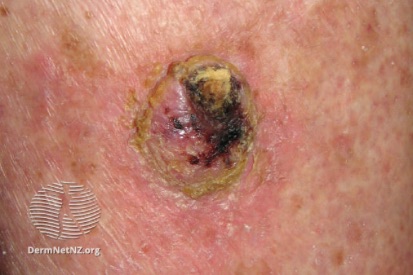Squamous Cell Carcinoma
Regular skin checks by a dermatologist at The Dermatology & Skin Surgery Center at Creedmoor are crucial for detecting Squamous Cell Carcinoma (SCC). Our expert dermatologists specialize in identifying suspicious lesions, growths, or changes in the skin that may indicate SCC. Additionally, self-exams are essential for monitoring your skin for any evolving or unusual areas, such as persistent sores, rough patches, or raised nodules. Early detection and treatment are key to managing SCC effectively.
Examples of Squamous Cell Carcinoma




Symptoms of Squamous Cell Carcinoma
- Squamous cell carcinoma usually begins as a dome-shaped bump or a red, scaly patch of skin.
- Rough and crusty and can bleed easily when scraped.
- Changes in existing growths: changes in the appearance of existing skin growths, such as warts or scars.
- Persistent sore: a sore or lump that doesn't heal, or a lesion that keeps recurring.
What Causes Squamous Cell Carcinoma?
- Squamous cell carcinoma (SCC) can affect individuals across diverse backgrounds.
- It is more prevalent in those with regular exposure to direct sunlight, especially in professions or lifestyles that involve significant sun exposure.
- While skin cancer is less common in individuals with darker complexions, they are at an increased risk for SCC in areas of the body not typically exposed to the sun.
Squamous Cell Carcinoma Prevention
Squamous Cell Carcinoma FAQs
Individuals at higher risk for SCC include those with fair skin, light hair, and light eyes, those with a history of sunburns or excessive sun exposure, those with a weakened immune system, and those with a personal or family history of skin cancer.
Preventing SCC involves protecting your skin from UV radiation by using sunscreen, wearing protective clothing, seeking shade, and avoiding tanning beds. Regular skin checks and self-examinations are also important.
If you notice any unusual or persistent changes in your skin, schedule an appointment with a dermatologist for an evaluation. Early detection and treatment are key to effectively managing SCC.
The primary cause of SCC is prolonged exposure to ultraviolet (UV) radiation from the sun or tanning beds. Other risk factors include having fair skin, a history of sunburns, and a weakened immune system.
A dermatologist will examine the suspicious area and perform a biopsy, where a small sample of the skin is taken and analyzed under a microscope to confirm the diagnosis.
SCC may appear as a persistent sore, rough or scaly patch, raised growth with a central depression, or a wart-like nodule. These lesions may bleed, itch, or become crusty.
From Our QualDerm Family of Brands: Non-Melanoma Skin Cancers
Treatment Options for Squamous Cell Carcinoma
- Mohs micrographic surgery
- Excisional surgery
- Cryotherapy (freezing)
- Currettage and Electrodessication
- Chemotherapy
- Radiation
Featured Products for Sun Protection
Check your local office for current stock!
Check your local office for current stock!
